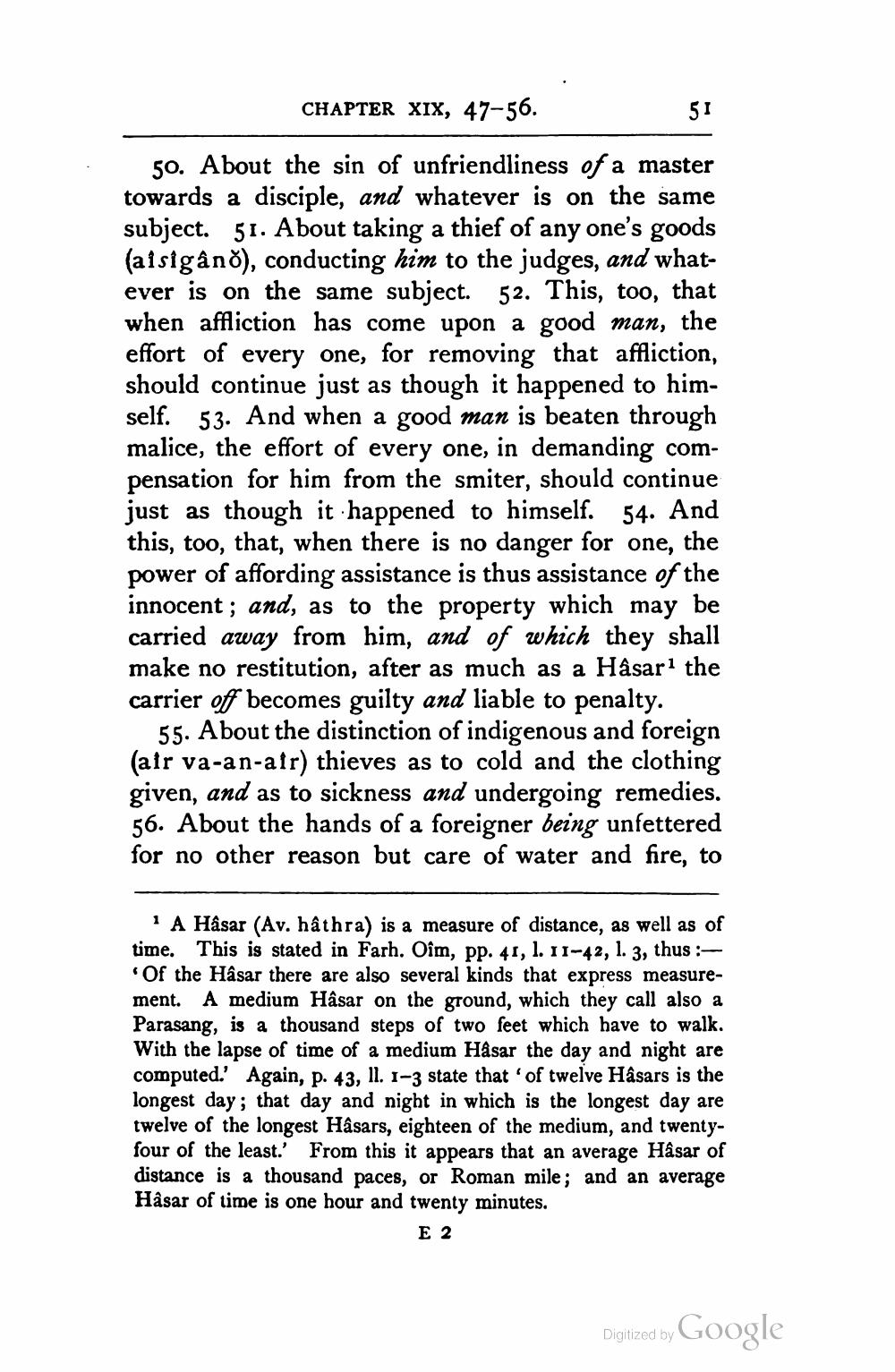________________
CHAPTER XIX, 47-56.
51
50. About the sin of unfriendliness of a master towards a disciple, and whatever is on the same subject. 51. About taking a thief of any one's goods (aisigano), conducting him to the judges, and whatever is on the same subject. 52. This, too, that when affliction has come upon a good man, the effort of every one, for removing that affliction, should continue just as though it happened to himself. 53. And when a good man is beaten through malice, the effort of every one, in demanding compensation for him from the smiter, should continue just as though it happened to himself. 54. And this, too, that, when there is no danger for one, the power of affording assistance is thus assistance of the innocent; and, as to the property which may be carried away from him, and of which they shall make no restitution, after as much as a Hâsarthe carrier off becomes guilty and liable to penalty.
55. About the distinction of indigenous and foreign (air va-an-afr) thieves as to cold and the clothing given, and as to sickness and undergoing remedies. 56. About the hands of a foreigner being unfettered for no other reason but care of water and fire, to
1A Hasar (Av. hâthra) is a measure of distance, as well as of time. This is stated in Farh. Oim, pp. 41, 1. 11-42, l. 3, thus :
of the Hasar there are also several kinds that express measurement. A medium Hasar on the ground, which they call also a Parasang, is a thousand steps of two feet which have to walk. With the lapse of time of a medium Håsar the day and night are computed.' Again, p. 43, 11. 1-3 state that of twelve Hasars is the longest day; that day and night in which is the longest day are twelve of the longest Hâsars, eighteen of the medium, and twentyfour of the least. From this it appears that an average Håsar of distance is a thousand paces, or Roman mile; and an average Håsar of time is one hour and twenty minutes.
E 2
Digitized by Google




